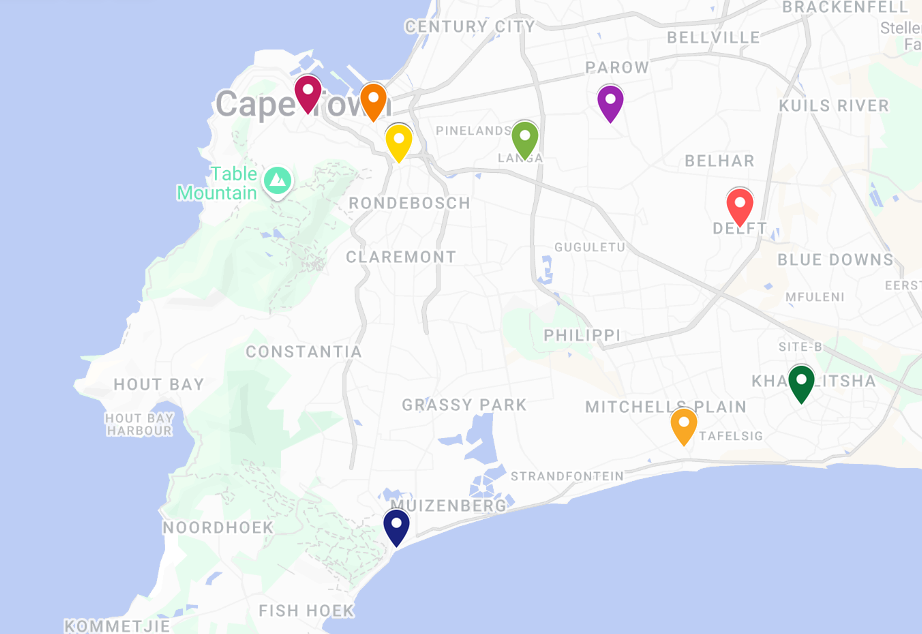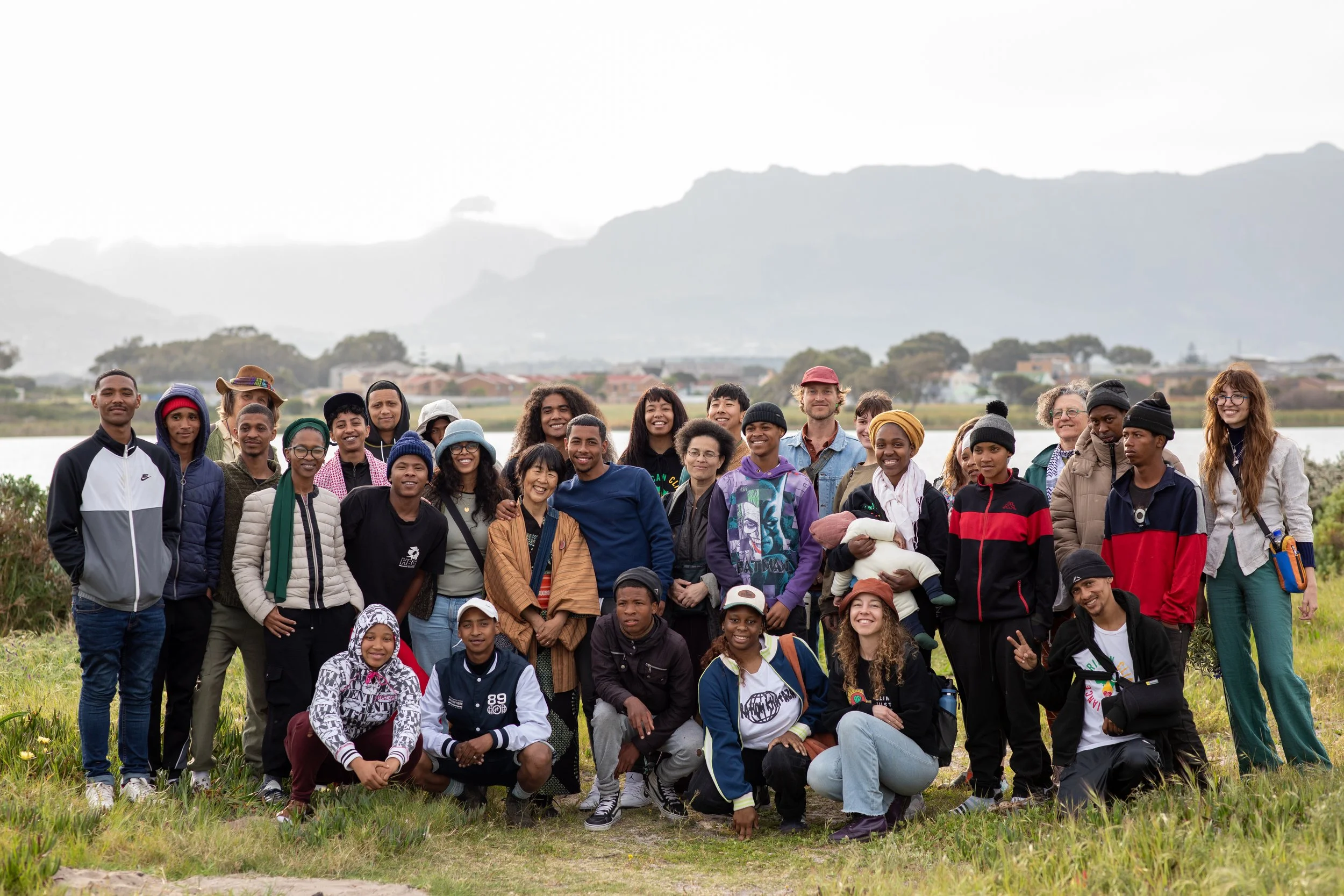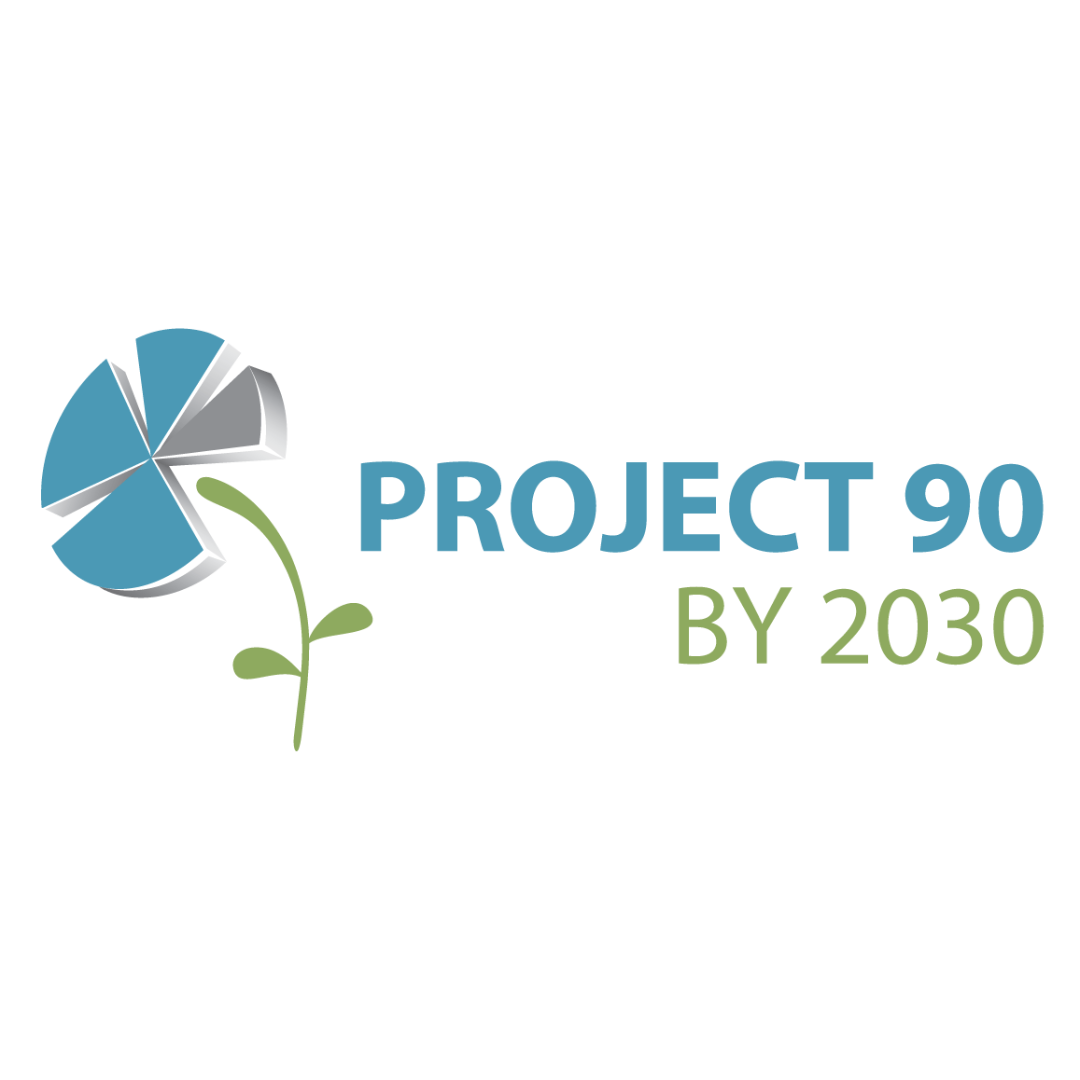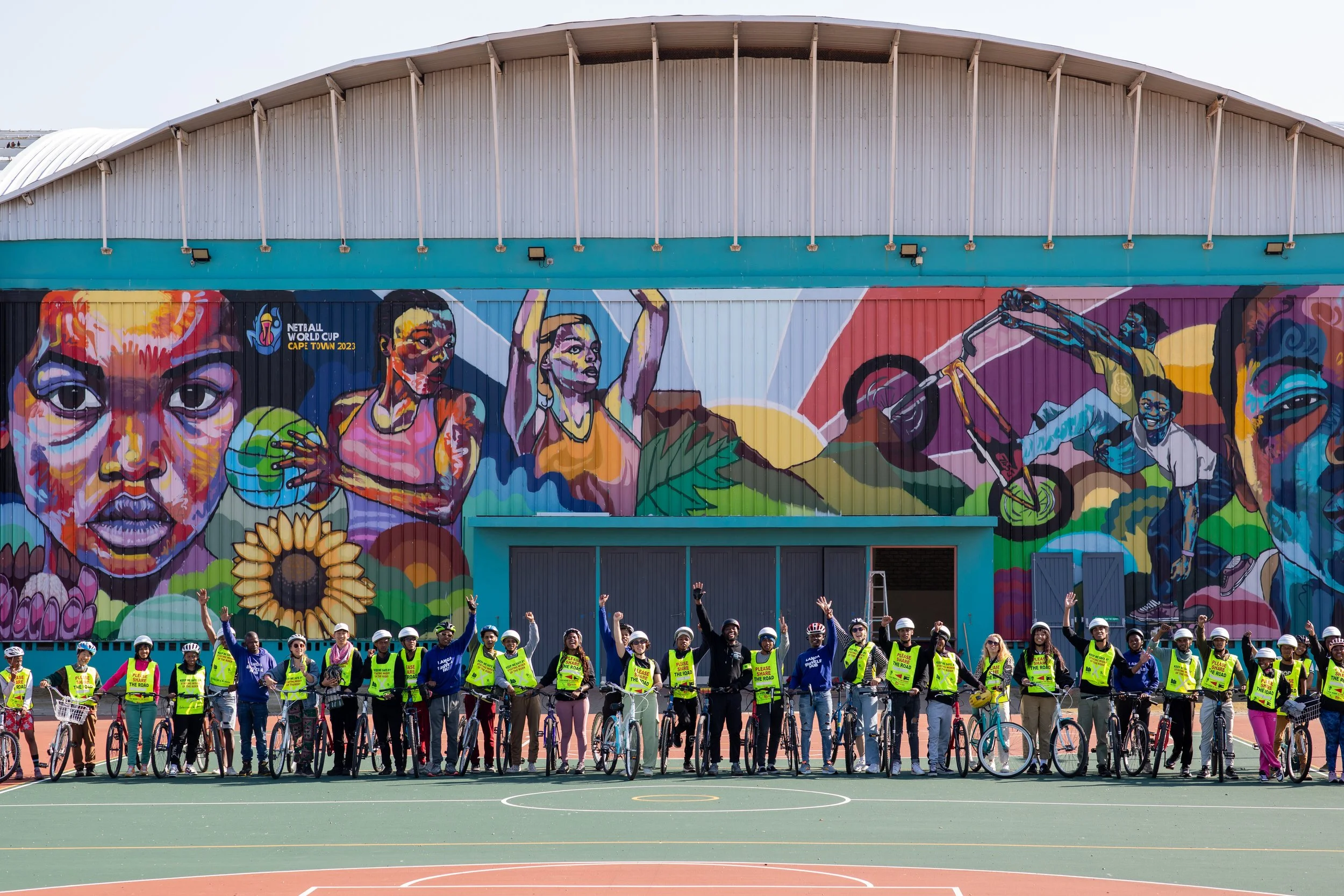

Cape Town
Climate Week
8—13 September 2025
A week of city-wide, grassroots climate action
WHAT WAS IT ALL ABOUT?
Cape Town Climate Week returned for its fourth year – a city-wide celebration of grassroots solutions to our most urgent crises: climate change, spatial injustice, food and water insecurity, a broken energy system, and gender injustice.
This wasn’t another round of talks in boardrooms. Over six days and eight events, activists, community leaders, students, and citizens got on bikes, attended teach-ins, planted gardens, and walked the streets – exploring how climate change is deeply connected to social justice in South Africa.
Tapping into South Africa’s history of change catalysed by grassroots action, participants journeyed through different areas of the city and witnessed how climate change is a threat amplifier. When the floods come, it’s those worst affected by Apartheid spatial planning that lose their homes. When the droughts come, our food and water are at risk.
Citizens, and the youth, can’t wait for governments to waste time at conferences and talk shops – we can and should be bringing adaptation and resilience to our own communities, now.
WHAT WAS THE AIM?
Sometimes, these problems feel too big to tackle. But, by learning about alternative forms of transport, housing, urban planning, energy systems, food growing, water resilience and gender-inclusive policy, overwhelm was turned into collective grassroots action.
The aim was to create a sense of curious, active citizenry and prove that there are many ways to care for our planet, communities, and generations to come. Ultimately, taking climate action has positive social impacts.
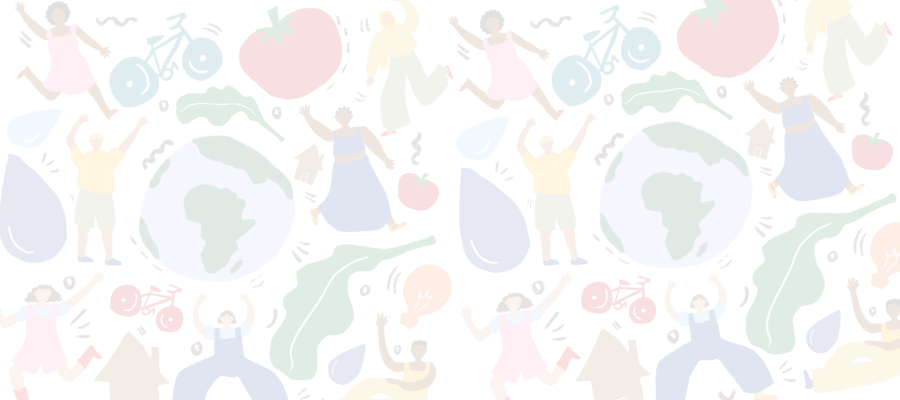
2025 THEMES
ENERGY JUSTICE | WATER JUSTICE | FOOD JUSTICE | SPATIAL JUSTICE | GENDER JUSTICE | INTERGENERATIONAL SOLIDARITY
By exploring the 6 thematic areas, Cape Town Climate Week 2025 aimed to promote dialogue, collaboration and, fun, and dynamic action towards building a sustainable and just future in South Africa. This will be done through group cycles, teach-ins, tours, screenings, and gatherings across the city.
Download our Climate Week educational resource booklet below to learn more about each of these themes and how they are connected to climate justice.
2025 PROGRAMME
MONDAY, 8 SEPTEMBER
CYCLE FOR SYSTEM CHANGE
To kick off Cape Town Climate Week 2025, we held a group awareness-raising cycle, from Bertha House to Lange Bicycle Hub, followed by a discussion on how we navigate through a segregated city and how accessible public transport can transform our city.
UNDOING SPATIAL APARTHEID: LESSONS FROM LANGALIBALELE
This interactive session will explored the intersection between climate change and spatial injustice in Cape Town, through the lens of Ndifuna Ukwazi’s Langalibalele pilot project in Langa. The project is a prototype of climate-resilient emergency housing using Alternative Building Technologies (ABTs) like sandbag construction. This session grounded the broader conversation on climate inequality in a real-world site of innovation and resistance.
BORDERS AND BELONGING: ‘BOUBE OF THE FULANI’ SCREENING + DISCUSSION
We can’t address spatial justice in the age of climate change without discussing climate migration. We hosted a screening of the short documentary, set in Benin, ‘Boube of the Fulani’ and a facilitated discussion about how rethinking borders and belonging must be part of our future imaginings.
About the film: “Boubé and his Fulani tribe prepare for the seasonal migration, an adventure that has sparked conflict over the recent years as water and grazing shrinks due to climate change. He has a plan to approach the tensions differently this time, in the hopes of finding a new way to co-exist.”
TUESDAY, 9 SEPTEMBER
SOWING SEEDS FOR SYSTEM CHANGE CITY TOUR
We hosted a guided food justice tour and planting experience across Cape Town, exploring how food connects us, nourishes us, and serves as a tool for freedom and reclamation. Together, we visited key community garden locations in Elsies River, Delft and Mitchells Plain, listened to stories of food growers, shared a farm-to-table lunch and saw firsthand how people are taking food sovereignty into their own hands.
WEDNESDAY, 10 SEPTEMBER
CLIMATE CAFE: ENERGY JUSTICE
The fossil fuel industry continues to shape energy policies, delay climate action, and obscure its historical role in driving the climate crisis—often at the expense of marginalised communities. We hosted a Climate Cafe and exhibition that combined education, interactivity, and collective action to expose the industry’s tactics, celebrate progress in holding it accountable, and empower attendees to advocate for energy justice.
THURSDAY, 11 SEPTEMBER
RIPPLES OF CHANGE: SCREENING + WORLD WATER GAME
We explored what water justice means and how it’s connected to the climate crisis. The event began with a screening of ‘Capturing Water’, a documentary that explores the lived realities of water injustice in Cape Town and South Africa. Then, we’ll play The World Water Game, an interactive and experiential learning activity designed to provoke critical reflection and dialogue. Participants will engage with real-world scenarios through role-play, decision-making, and collaborative problem-solving.
FRIDAY, 12 SEPTEMBER
GENDER AND PLANETARY HEALTH TEACH-IN
The challenges to human health and wellbeing that the climate crisis presents are compounded by interlinking systems of patriarchy and queerphobia – the climate crisis will have even worse consequences to the health and wellbeing of women and other marginalised genders. We hosted a teach-in that brought together the issues of the climate crisis, maintaining pillars of health (shelter, food, medicine) and patriarchy.
SATURDAY, 13 SEPTEMBER
TEA BETWEEN GENERATIONS: BUILDING MOVEMENTS WITH CARE AND COURAGE
Since storytelling is at the heart of how we build solidarity, the closing of Cape Town Climate Week 2025 was a time to gather and share stories for collective liberation. We hosted ‘Tea Between Generations: Building Movements with Courage and Care’ — a storytelling gathering that brought together youth and elders that have been involved in struggle movements before us. As we listened and engaged with the stories of older comrades, this event created an intergenerational space for us to reflect on how we can cultivate everyday strategies and ideas for resistance against all systems of oppression.



